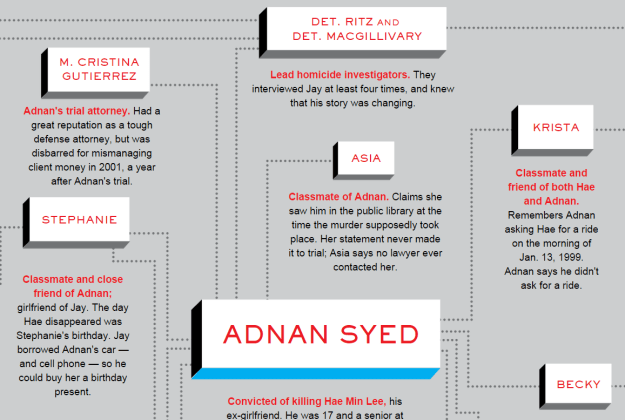In this latest post in the FAQ series, I’ve been asked to help answer a question on the “ethical dilemmas faced by news organisations when considering the use of AI in reporting stories“.
Continue readingCategory Archives: ethics
FAQ: The changing ethics of 21st century journalism

The latest frequently asked questions post focuses on questions from a Masters student interested in the effect of the rise of online news on journalism ethics.
Do you think that the ethical codes of journalism have changed in the transition from traditional journalism to digital?
I think the ethics of journalism have changed, yes, for a range of reasons, and in both negative and positive ways. For example, transparency has become much more highly valued as a journalistic value: journalists are expected to earn the trust of readers much more than was previously the case, and I would argue that is a positive development. Linking to sources, sharing methodologies, etc. forces journalists to hold themselves to higher standards. Continue reading
Sometimes we talk to bad people, and they have to trust us – a podcast talking point
Radiolab’s recent podcast The Buried Bodies Case is a brilliant piece of storytelling. The producers’ newsgathering; the choices of elements and how they are arranged; the tight editing and use of silence — all these make for a masterclass in longform narrative that any journalism student would benefit from exploring.
But it’s not that which prompted me to blog about it.
The content of the podcast is perhaps the best exploration of journalist-source ethics I’ve heard, without it actually being about journalists.
Spoiler alert: if you want to enjoy the podcast without knowing where it goes, then stop here, listen to it, and then come back. Continue reading
HuffPost editor Stephen Hull triggers furious reaction over being ‘proud’ not to pay writers
The Huffington Post’s UK editor-in-chief Stephen Hull has provoked a curious backlash on Twitter following an appearance on Radio 4’s Media Show where he was asked why he doesn’t pay writers, writes Alex Iacovangelo.
“I love this question,” he replied:
“If I was paying someone to write something because I want it to get advertising, that’s not a real authentic way of presenting copy.
“When somebody writes something for us, we know it’s real, we know they want to write it. It’s not been forced or paid for. I think that’s something to be proud of.”
Tweeters quickly condemned him for encouraging the tactic during a time when jobs are being cut and budding journalists struggle to financially survive.
Below are some of the tweets, you can read the rest on this link:
(Note: @edcaesar quoted Stephen Hull)
@edcaesar In that case, he should refuse his salary – we wouldn’t want his corrupted paid-for editing would we? His editing should be “real”
— Stuart McGurk (@stuartmcgurk) February 18, 2016
@edcaesar Ed, this is a disgusting way to treat people. And to quote yourself like that! I thought more of you. This is where we part.
— Letters of Note (@LettersOfNote) February 18, 2016
@edcaesar @arseblog Real incentive for all young journalists. Hey let’s do something really good for free. Journalism is a job not a charity
— Stephen Killick (@SteveKills) February 18, 2016
.@edcaesar When I scream ARSEHOLE at him, nobody will be paying me. He’ll know it’s real.
— Eddie Robson (@EddieRobson) February 18, 2016
@edcaesar Bullshit. This fellow just needs to admit they are too cheap to pay authors & too corrupt to share earning off their writing!
— Nuzhat S. Siddiqi (@guldaar) February 18, 2016
@edcaesar @stephenbhull I’m curious as to where your idea that unpaid writing is somehow “purer” than paid writing comes from.
— Torraine Walker (@TorraineWalker) February 18, 2016
@edcaesar Which is why I stopped writing for them – also because they don’t promote the writing, and also because of the Sidebar of Shame.
— Judi Sutherland (@judi_sutherland) February 18, 2016
@edcaesar No. Are you insinuating that people who do get paid for their work are less real? THIS is why I did not choose to write for you.
— Wordtasting (@Cookwitch) February 18, 2016
@edcaesar @SallyThompson they’re prepared to take the financial reward of other people’s labour, though
— That Dave McKinnon (@DaveMcKinnon__) February 18, 2016
.@edcaesar What’s even worse is that “exposure” hungry writers do it, not realising that all it adds to their CV is: “Happy to be exploited”
— Sam Rowe (@samrowe_) February 18, 2016
Maybe it’s the HuffPost UK editor’s salary that is making them speak such inauthentic bollocks @edcaesar
— Abi Wilkinson (@AbiWilks) February 18, 2016
@edcaesar Surely has opposite effect. If not getting paid then fuck it, if all elements of a piece arent 100% correct what are they losing?
— Simon Margolis (@Si_Margolis) February 18, 2016
@edcaesar Another interpretation: because we don’t pay them, there’s no onus on them to write truthfully or do proper research.
— Bobbito Ball (@bobbitoball) February 18, 2016
@edcaesar @feelinglistless This is why I won’t read Huff Post, because I know its owners are exploitative.
— asta (@asta) February 18, 2016
@edcaesar @mikejakeman was he then asked: “So, why are you not working for free?”
— Alt Cricket (@AltCricket) February 18, 2016
Serial: all good journalism is voyeurism – and bad journalism too (but it’s still journalism)
After reporting on online journalism for some time you tire quickly of people saying “this is not journalism“. On Tuesday Brian C. Jones leveled this accusation at the podcast sensation Serial:
“Sarah Koenig, the lead producer and narrator … used the tools of legitimate reporting — the right to public records, access to experts, the goodwill of interviewees, compelling soundbites, stylish storytelling … — to intrude into and disrupt real lives for the fun of it. It’s voyeurism, not journalism.”
Serial follows Koenig as she attempts to get to the bottom of a murder conviction she suspects may be a miscarriage of justice. The fact that she does not know whether it is or not is the basis of Jones’s misgivings:
“Real-life stories hurt the peopled involved … When the reporting phase is exhausted, it’s crucial to understand what kind of a story it is, and maybe whether it is a story at all.”
I think Jones makes a mistake common to those used to traditional journalistic production practices: firstly to mistake the subject for the purpose; and secondly to misunderstand modern journalism techniques. Continue reading
FAQ: Do you need new ethics for computational journalism?
This latest post in the FAQ series answers questions posed by a student in Belgium regarding ethics and data journalism.
Q: Do ethical issues in the practice of computational journalism differ from those of “traditional” journalism?
No, I don’t think they do particularly – any more than ethics in journalism differ from ethics in life in general. However, as in journalism versus life, there are areas which attract more attention because they are the places we find the most conflict between different ethical demands.
For example, the tension between public interest and an individual’s right to privacy is a general ethical issue in journalism but which has particular salience in data journalism, when you’re dealing with data which names individuals.
I wrote about this in a book chapter which I’ve published in parts on the blog. Continue reading
The Mastercard Brit Awards journalists should have quoted the ASA
I’ve been told to tweet this tomorrow: ‘Really excited to be heading down to @BRITAwards tonight with [sponsors names here]’. No, no, no.
— Tim Walker (@ThatTimWalker) February 18, 2014
Last week’s reports on a PR company’s demand to journalists that they post tweets in exchange for accreditation missed one important factor: the Advertising Standards Authority.
The arrangement – involving a PR agency handling Mastercard‘s sponsorship of the Brit Awards – was revealed when Telegraph reporter Tim Walker sent an email to Press Gazette. They reported:
“Before providing two journalists from the Telegraph with accreditation to attend the event House PR has asked them to agree to a number of requests about the coverage they will give it.
“They have even gone as far as to draft Twitter messages which they would like the journalists to send out – and asked that they include a mention of the marketing campaign #PricelessSurprises and @MasterCardUK.”
Do such messages fall foul of the ASA’s guidelines on “marketing communications” on Twitter?
The ASA’s press officer Matt Wilson said that they don’t have a precedent, but told me:
“If entry to the Brit awards was conditional on the journalist tweeting on behalf of Mastercard, we’d likely view that as a ‘reciprocal arrangement’ (i.e. the journalist receiving a benefit they wouldn’t have otherwise). Continue reading
FAQ: Big data and journalism
The latest in the series of Frequently Asked Questions comes from a UK student, who has questions about big data.
How can data journalists make sense of such quantities of data and filter out what’s meaningful?
In the same way they always have. Journalists’ role has always been to make choices about which information to prioritise, what extra information they need, and what information to include in the story they communicate. Continue reading


